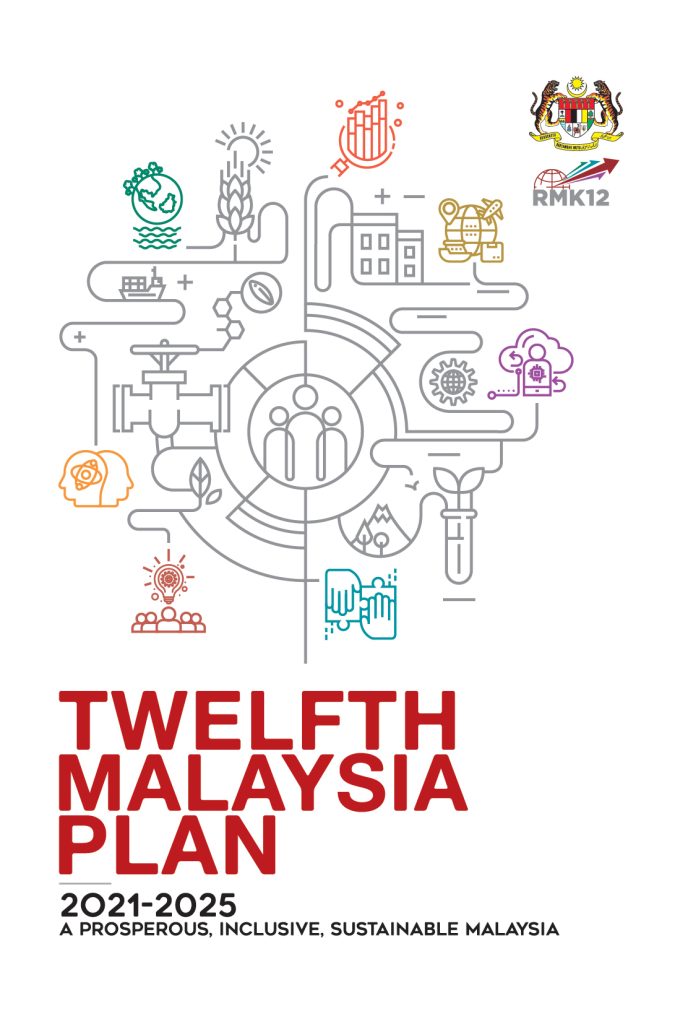The 27th Conference of the Parties to the United Nations Framework Convention on Climate Change (COP27) held on 20 November 2022 in Egypt addressed two critical issues facing the planet: one, highlighting the interlinkage between climate change and biodiversity and two, reaching an agreement whereby member countries are to establish a fund to compensate those countries prone to ‘loss and damage’ from climate-induced disasters.
In the local context, Malaysia has seen heavy rainfalls that caused floods and landslides in 2021 and, recently, in 2022. Observers attribute deforestation and climate change as the main cause of these natural disasters in Malaysia. Unfortunately, Malaysia may not be eligible for the loss and damage fund as the fund is meant for countries that are considered less developed.
An example of putting in place certain policies to address climate-induced disasters, the 12MP 2021-2025 showcases Malaysia’s commitment to becoming a carbon-neutral nation by 2050 by targeting to reduce greenhouse gas emissions to 45 percent of the Gross Domestic Product (GDP) by 2030. This has presented challenges to publicly listed companies (PLCs) and small and medium sized enterprises (SMEs) to undertake green product innovation and strategise their sustainability transformation roadmap to achieve the net zero targets set in the 12MP and COP27.
As partners to businesses who work in every sector, professional accountants are expected to play a leading role in implementing sustainability strategies and supporting business in their sustainable transformation. This article looks at some key areas of impact for business and the profession and how accounting and finance professionals should respond.
Digitalisation and sustainability
Digitisation is critical to overcoming sustainability challenges. The culture of embracing digital technology within a business organisation will encourage sustainable innovation. Implementing sustainable digital technologies can reduce waste and make a business more energy efficient, ultimately reducing carbon emissions. Therefore, finance leaders have a pivotal role in allocating resources for digitalisation to achieve the United Nations’ sustainable development goals, such as SDG12 [Responsible consumption and production] and SGD 13 [Climate action] goals.
Initiatives taken by the Malaysian Government to promote the environmental, social, and governance (ESG) agenda
(i) Transition to renewable energy
The National Energy Policy 2022-2040 was drawn up to aid businesses in transiting from fossil fuels to clean energy. The 12MP 2021-2025 introduced carbon pricing to encourage public and private companies to adopt clean energy mechanisms to reduce greenhouse gas (GHG) emissions. Carbon pricing is a method whereby an economic value is attached to carbon emissions by calculating a tax per tonne of carbon dioxide.
(ii) Voluntary Carbon Market (VCM) Exchange
The setting up of a voluntary carbon market (VCM) acts as an initiative for listed companies to mitigate their carbon gas emissions. The mechanism by which VCM works in carbon trading is that each company may be given a cap on how much GHG they are permitted to emit relative to their industries. Low-emission companies could sell their excess quota, while companies with a considerable carbon footprint could purchase that additional quota to meet their regulatory requirements. For VCM to be effective, there needs to be an efficient supply and demand market for carbon trading needs.
(iii) Introduction of FTSE ESG scores/index as benchmarks in the capital market
Domestic and foreign institutional investors evaluate companies listed in the Main and ACE markets on their ESG performance to reduce their exposure to both ESG and climate risks. Bursa Malaysia launched the FTSE Russell index to aid investors and institutional investors in making informed economic decisions. The specific indicators of climate change include greenhouse gas emissions, energy reduction, and targets. Bursa Malaysia has recently amended its listing requirements to enhance disclosures of common sustainability matters and indicators for both the Main and ACE markets and to align with the climate change-related disclosures of the Task Force on Climate-Related Financial Disclosures (TCFD) for the Main market and to require disclosure of a basic transition plan to a low carbon economy for the ACE market. This will promote greater accountability and transparency to stakeholders. In addition, the Securities Commission Malaysia (SC) introduced the Sustainable and Responsible Investment (SRI) Taxonomy to guide companies on the principles of economic activities that support ESG objectives and the SRI-Linked Sukuk Framework, which focuses on green social and sustainability goals.

Sources of sustainable finance
Financial institutions have become signatories to the UN Principles for Responsible Banking to support the transition towards a low carbon economy. Consequently, financial institutions incorporate ESG risk and ESG performance in their investment, insurance, and lending decisions. To achieve net zero targets set in the 12MP 2021-2025, businesses need to invest in green projects, such as the innovation of electric vehicles in the transportation industry, which should ideally be supported by sustainable finance. Maybank, for instance, provides Maybank Global Sustainable Equity-I Fund, Maybank Global Sustainable Technology Fund, and Maybank Global Environment Fund to ensure adequate resources are available to help their clients innovate and transform their business models to achieve sustainable growth. Financial institutions also issue sustainable bonds to companies to support green investments and technologies.
Competency of accountancy professionals in reporting and assurance
ESG reporting is multi-disciplinary, which includes the role of the accountancy profession. The Malaysian Institute of Accountants (MIA) has produced the MIA Competency Framework for CFOs in Public Interest Entities and MIA Competency Framework Finance Function in Public Interest Entities for accountants, which propagate the profession’s need to build their internal capacity, technical and professional competency skills to adapt to the changes in the corporate reporting landscape, especially in the use of technology as an enabling tool, to collect and process financial and non-financial information, and report to stakeholders.
Broadening the accounting educational curriculum on auditing and assurance enables accountants to be involved in providing assurance reports on climate change and sustainability data. The enhanced listing requirements on sustainability disclosures will require a statement of assurance on whether the disclosures have been reviewed internally by internal auditors or independently assured to give credibility to reported information. Therefore, the accountancy profession’s role as external auditors will be significant in providing assurance on ESG data and sustainability disclosures.
Management accounting and use of financial and other data
Knowledge of management accounting systems and finance taught in the accounting curriculum will enable the collection of emissions data, reporting, and monitoring of financial and other non-traditional data. The implementation of carbon tax depends on the credibility of carbon emissions data. This is important as the ESG reporting standards and Frameworks require disclosures by companies regarding Scope 1 (controlled source), Scope 2 (indirect emissions from the generation of purchased electricity, steam, heating, and cooling), and Scope 3 emissions (all indirect emissions throughout the supply value chain). Hence, the role of accountants as advisers will aid the board of directors in their governance, financial management, strategic decision making, and communication of these economic activities to stakeholders through more reliable sustainability reporting. In recent times, higher learning institutions have introduced fintech and digital technologies through data science and big data courses into the accountancy curriculum to ensure that accountants develop their technical and critical thinking skills to analyse data, including sustainability-related data, to add value to their organisations.
Dr Shyamala Dhoraisingam Samuel is a member of the Professional Accountants in Business Committee, MIA. She is also a lecturer at Monash University Malaysia campus.







